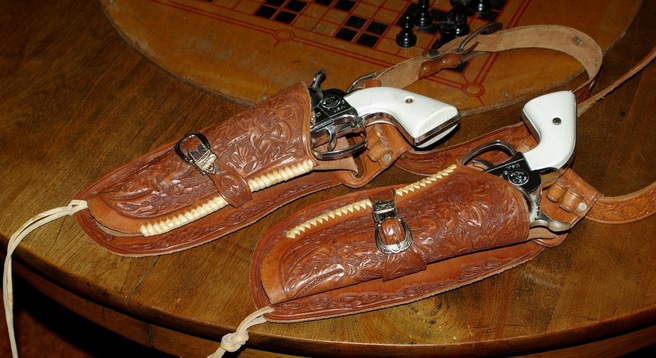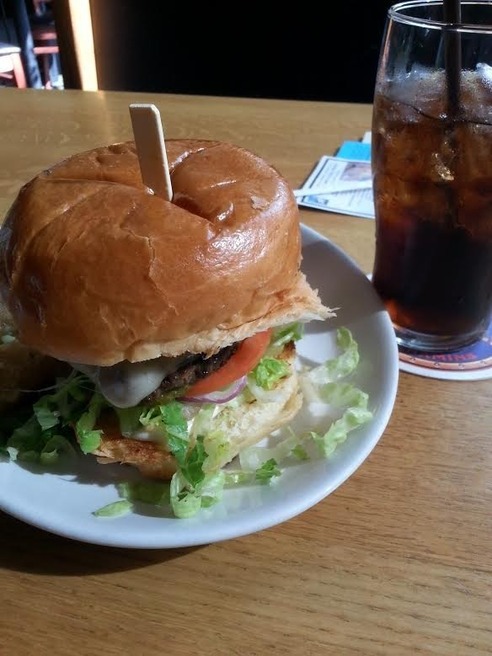A Storm We'll Never Forget
This is a column that Dad wrote about his experiences during the 1962 Columbus Day Storm. It was published in the Lake Oswego Review October of 2005.
Hurricane Katrina left no doubt. Unchecked and unleashed, the power of Nature has no equal. In minutes it can erase life, uproot a landscape and stamp out any signs of where man has been. Attempts to control it by anything we might invent are just a waste of time. When Nature goes on a rampage, the best advice is to get out of the way.
Many people in Katrina's path down in the Gulf Coast knew she was aimed at them...and ran. Others didn't - or couldn't - but were warned. Modern day technology told them what to expect.
Those of us in the Pacific Northwest weren't so fortunate 43 years ago when we were hit with a monumental weather upheaval of our own. We simply didn't see it coming!
It literally squashed us with full force and knocked us to our knees. The date was October 12, 1962- a federal holiday.
Hurricane Frieda was born out of the Pacific near Wake Island...and somehow, after wandering through the Gulf of Alaska it perched itself on the West Coast. This is what became known as the Columbus Day Storm. Columbus Day will be observed next Monday.
This huge depression picked up a head of steam in northern California. And, like a roller coaster car at the bottom of the first dip (with the effect of a slingshot), it didn't slow down until it reached British Columbia. It really ripped its way up through Western Oregon and Washington. Forecasters called it a "Meterological Bomb". And it was! We had no clue. Nobody seemed to know anything about it until the trees started to crash down around us.
I remember it all too well. I was the weatherman on staff at KPTV, Channel 12 here in Portland. I worked the late shift the evening this unwelcome monster dropped in on us. I had just pulled up and parked on 21st Street near West Burnside. It was shortly before 5:00 pm. I opened the back door when a gust of wind almost took it off its hinges. Strange! I went to the newsroom and checked the teletype printer - nothing of real significance... yet.
Somewhat later, lights in the building flickered a little like visual Morse Code, and I heard loud talking from one of the offices upstairs. I went to investigate and found several people looking out the big front windows at Multnomah Stadium just across the street. High winds had peeled inch-thick 4'x8' plywood sheets off the roof and flipped them into the air like giant flat toothpicks that smashed big auto-dealer showroom display windows down at street level.
Some utility poles snapped and swayed on useless power lines. A gust of wind on the Morrison Street bridge anemometer, we later found out, was recorded at 117 mph.
Then the truth hit us. It was getting dark. And we had no electricity - which meant we were out of business - the business of communication. We all wanted to get on the air and do what we were supposed to do - be a source of information for the public. But we had on effective generator strong enough to provide power to a television transmitter. That type of technology would come later - it didn't exist in those days. So, the logical thing to do was go home.
Telephone service was not entirely gone, and I finally got through to my wife in Lake Grove. She was okay, just scared, and the same for our children. They had all spent the last hour at the height of the storm huddled under the dining room table - and of course, there was no electricity. The wind was now susbsiding and I had to get home. Before I hung up, I said, "I'm on my way." But, as I soon found out, it was quite a bit easier said than accomplished.
A KPTV engineer and I lived in the same area, so we decided to travel together. Many roads were totally blocked by big tree limbs, pieces of houses, and abandoned cars - with hardly any clear streets - most covered with thick mattresses of fir boughs. The landscape looked like the aftermath of a war-time bombing run. The night sky by then was as black as the inside of a cave. Without headlights, travel would have been impossible.
My friend and I had left KPTV around 7:00 pm, shortly after the storm had reached its apex. We finally pulled into Lake Grove about 8:30. I dropped off my storm companion and went up the street to my own driveway on Upper Drive. It was choked with debris. I bulldozed my way in. There was no moon that night, but I heard some noise, went inside the house and there was my family - we were together and well. My wife had a couple of candles going. We all talked for awhile to get rid of our anxiety, then went upstairs to bed. We had to put our lives back together... but we needed daylight to do it. Tomorrow!
In the morning we took stock and like everybody else, had no idea how long we'd be without power. I found my camping stove - and a quick trip to the service station produced one of the last gallons of white gas. We then became the kitchen for half a dozen of our neighbors. To save the freezer food, I found some dry ice at the grocery store. Wherever I went, everyone traded information - some from phone calls - others from battery powered radios.
Hardly anyone throughout the outlying Metro area had electricity. That translated into 470,000 homes. Power restoration crews had to start from the ground up. We learned that wind gusts the night before had peaked at over 160 mph along the coast. Inland, through the valley, sustained winds had reached just under 90. The death toll from the storm was 46 and along with that 50,000 homes were destroyed. Property damage topped out at $235 million. In today's figures it reads $6 billion.
Downtown Portland had most of its power restored within two or three days. That meant it was back to the Channel 12 newsroom for me...and we all had our work cut out for us. There was more than enough information to pass on to an anxious public.
Dealing with any kind of assault from Nature is far from pleasant. But 43 years ago we proved the Pioneer spirit was still very much alive and in good form. And, to this day I don't think there's any doubt Oregonians know how to tap into its strength.
The Columbus Day Storm of 1962... it's one of those events that burns a permanent place in your memory. Forget it? Not if you lived through it!



